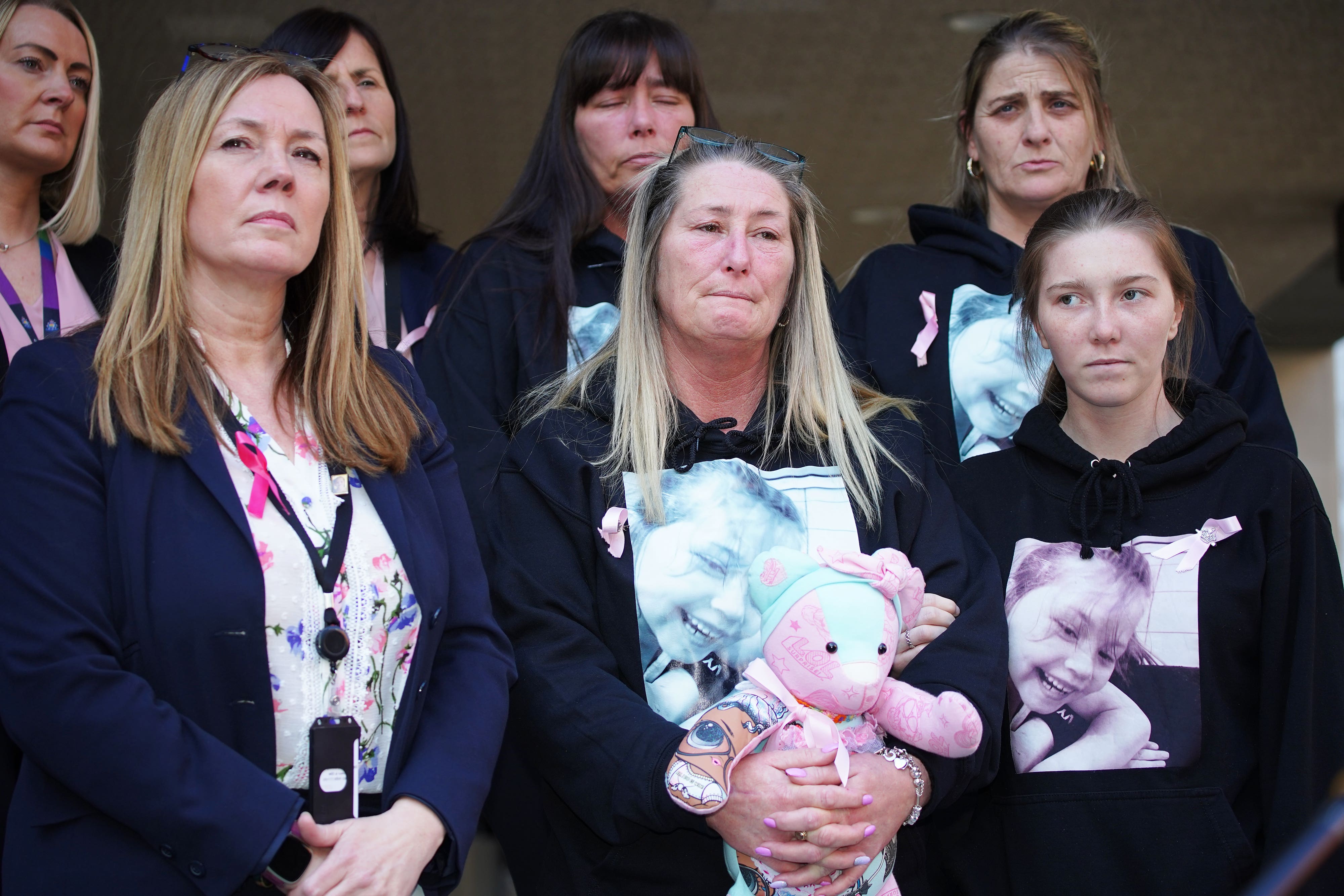There is a deep irony to Thomas Cashman refusing to appear in court
Should a murderer be present for their sentencing hearing? A blank space makes them even more pathetic than they already are and makes them a coward, but reinforces the message the focus should be on the families of victims


Your support helps us to tell the story
From reproductive rights to climate change to Big Tech, The Independent is on the ground when the story is developing. Whether it's investigating the financials of Elon Musk's pro-Trump PAC or producing our latest documentary, 'The A Word', which shines a light on the American women fighting for reproductive rights, we know how important it is to parse out the facts from the messaging.
At such a critical moment in US history, we need reporters on the ground. Your donation allows us to keep sending journalists to speak to both sides of the story.
The Independent is trusted by Americans across the entire political spectrum. And unlike many other quality news outlets, we choose not to lock Americans out of our reporting and analysis with paywalls. We believe quality journalism should be available to everyone, paid for by those who can afford it.
Your support makes all the difference.When a murderer fails to attend their own sentencing hearing, one cannot imagine the pain caused to the victim’s loved ones. Some might view the murderer’s invisibility as a sign of disrespect towards the entire judicial process as well as the victim, others might consider him a coward.
What is their final ploy? Are they attempting to exert some form of morbid power and control or are they simply a coward?
Last week, Thomas Cashman, 34, a drug dealer, was found guilty of murdering Olivia Pratt-Korbel, aged nine, in her own home while he was in “ruthless pursuit” of another man. He fatally shot Olivia and injured her mother, Cheryl Korbel. Olivia’s family members gave emotional statements in court, revealing the irreparable impact of her loss on their lives.
Olivia’s sister Chloe, 18, spoke about her younger sister in court: “When I was told she passed away, I felt as though my heart had stopped beating. A piece of me left with her that night and since then I have felt as though I am in a nightmare that I cannot wake up from.”
A statement was read out on behalf of Olivia’s father, John Pratt, who said his heart was “forever broken”, and that he had been unable to mix with people or work properly since the murder. Olivia’s mother described her despair: “I felt helpless … My worst nightmare was being separated from Liv and not being with her when she needed me most. I was the first person to hold my baby girl and as her mum I should have been the last.”
None of these harrowing, emotive statements were heard by Cashman, who had refused to attend court from his cell in the same building.
The issue of violent men refusing to attend their own sentencing hearing is a complex and vexing one. On the one hand, it can be argued that refusing to attend court where they are publicly sentenced for the crimes they committed is a means of retaining some semblance of control and power for one last time. On the other, their absence simply renders them cowards who are unable to face the consequences of their actions.
The act of refusing to go into the dock for the sentencing and therefore being sentenced in absentia could be seen as disrespectful to the legal system itself. By refusing to participate in the legal process, defendants could be saying that they do not recognise or care about the authority of the court. In cases of male violence against women and girls, this would be particularly damaging as it reinforces the notion that women are not deserving of justice.
For some victims, knowing that their perpetrator is facing a public hearing and public sentencing can be cathartic, helping with healing and moving on. Watching justice be served can encourage victims to come forward and report crimes, as they are able to see for themselves that the system is working.
But does it really matter if the perpetrator doesn’t attend court? A blank space where the perpetrator would ordinarily occupy space in the courtroom reinforces the message that justice is for victims and their families. There was a debate outside the court as to whether Cashman’s photograph should even be published. When Wayne Couzens was convicted of raping and murdering Sarah Everard, some people refused to speak or write his name. The perpetrator shall remain nameless and faceless; he did not deserve to be humanised. The only focus now is on the victims and their families, in this case, the focus is solely on Olivia and her family.
For a man who prided himself on being a “high-level” drug dealer, history will remember him as a child killer – and a coward.
Join our commenting forum
Join thought-provoking conversations, follow other Independent readers and see their replies
Comments